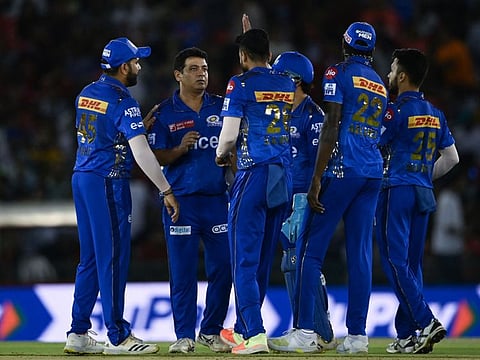Are Twenty20 franchise leagues threatening international cricket
Cricket seems to be heading football way with clubs controlling the players

Dubai: Top football clubs have their say in releasing players to their respective national assignments. Cricket is heading the same way with players likely to be controlled by their Twenty20 franchises, a move that could have a big impact on international cricket and the bilateral series.
“I have always said that the bilateral cricket will suffer, there is no question about that. With the leagues spreading around the world, it’s going to go the football way. The teams will assemble just before the World Cup, they play a little bit of bilateral, clubs will release the players and you play the mega World Cup. So it’s going to go that way in the long run, whether you like it or not,” Shastri told ESPNCricinfo.
Multi-tournament contracts
The prospect of Indian Premier League (IPL) franchises becoming primary employers of foreign cricketers over their national boards is moving closer with multi-tournament contracts already being offered to some players.
Eight of the IPL’s 10 franchises own at least one team in another league abroad and the owners of Mumbai Indians, Delhi Capitals and Kolkata Knight Riders have both acquired teams in new T20 tournaments in South Africa, UAE and the United States.
“Some players have been offered multi-club deals,” Neil Maxwell, Australia’s most prominent player agent, said. “The cricket landscape is changing rapidly and already contracting an Australian player has taken a different format.”
The growing number of T20 leagues offering lucrative contracts to the game’s best talent means national teams are sometimes having to play second fiddle. West Indies have struggled for years to field their best players due to scheduling clashes.
Choosing between country and club
And the situation is only likely to worsen for national boards as they struggle to match the multi-league contracts offered to their star players by private franchise owners.
A clear indication of the IPL’s expanding footprint came last year when its franchises snapped up all six teams in the lucrative T20 league in South Africa.
Shastri foresees that players may have to choose between their country and their club very quickly in future, especially for the ones who can’t make it to the international level.
“Look at the volume of people in India, we are 1.4 billion, and only 11 can play for India. What will the others do? They have an opportunity to play white-ball cricket, it’s their strength, globally, across different franchises in the world. Grab that opportunity. It’s common sense, it’s their living. It’s their income,” Shastri added.
Defensive measures from boards
The Indian conglomerates now want their best overseas recruits to represent them in multiple leagues and, according to the Cricinfo, informal conversations have begun with players from Australia, New Zealand, South Africa and West Indies, but some cricket boards are already taking defensive measures to protect their talent.
Cricket Australia last month announced a 7.5 per cent pay increase for its centrally contracted players, while also raising the salary cap in its Big Bash League.
The England and Wales Cricket Board is planning to increase match fees and offer multi-year contracts to key players to retain its top talent.
Maxwell, who manages Australia captain Pat Cummins and fast bowler Josh Hazlewood, said boards were offering longer-term contracts for the first time as a “result of competition”.
“This will evolve again as players get more and more choice as to when and where they play.”
Tipping point
Cummins is not surprised at how fast the landscape is changing and told Fox Sports: “... there’s going to be other opportunities that are going to be really hard for players to say no to, different franchises around the world”.
“I think realistically we’ve got to manage players a bit differently to what we have in the past.”
Maxwell drew a parallel with football and likened the financial might of the IPL to the English Premier League (EPL), whose clubs employ the cream of international talent.
“Cricket has traditionally survived off country v country competition — this is not sustainable in the long term,” he said.
Changing landscape
“The landscape is changing, similar to the EPL system where playing for the club is the priority.”
Cricket writer Nicholas Brookes, whose ‘An Island’s Eleven: The Story of Sri Lankan Cricket’ was Wisden’s Book of the Year in 2023, agreed with the football analogy.
“Clearly, the game is reaching a tipping point with franchise T20 fast becoming the dominating format, and all other forms of cricket left fighting for scraps,” he added. “I think we’re probably heading towards a similar situation to football, where the franchise sides become like Premier League clubs, and where international cricket is marginalised to preordained windows.”
While the likes of World Cups and the Ashes series would retain their eminence, players prioritising the franchise T20 game over regular bilateral cricket was not “totally implausible”, Brookes added.
The Federation of International Cricketers’ Associations (FICA) has long identified the potential conflict between T20 leagues and international cricket.
Both can coexist
FICA’s Chief Executive Tom Moffat said it has been advocating for a fixed global schedule so the two can coexist, an initiative he believes has become more urgent as private ownership across leagues has accelerated in the last 18 months.
“This would likely be best achieved through formal scheduling windows, which we know players are supportive of,” Moffat said.
Shastri, the former India all-rounder, signed off by saying he doesn’t feel sad about a potential shift in the cricketing world. “I don’t feel bad at all,” but he added that “one of the faculties of the game will suffer. I think it will be 50-over cricket.”
— With inputs from IANS, Reuters
Sign up for the Daily Briefing
Get the latest news and updates straight to your inbox



